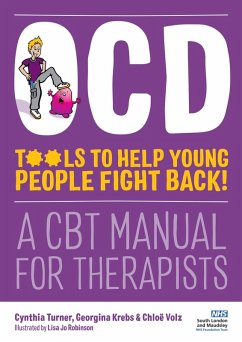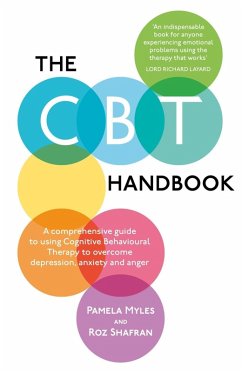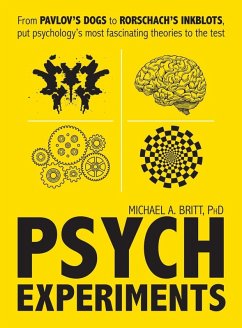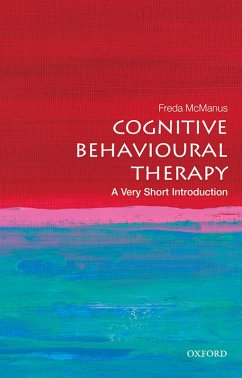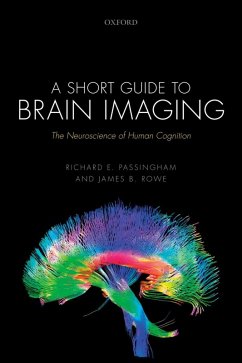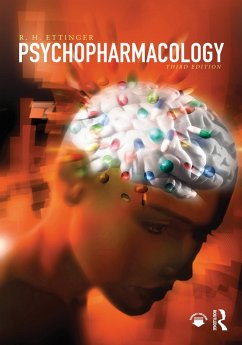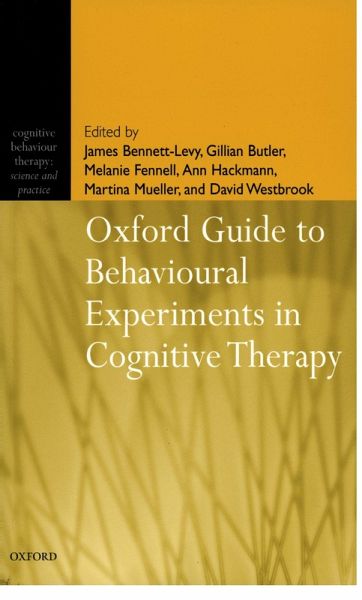
Oxford Guide to Behavioural Experiments in Cognitive Therapy (eBook, ePUB)

PAYBACK Punkte
11 °P sammeln!
Behavioural experiments are one of the central and most powerful methods of intervention in cognitive therapy. Yet until now, there has been no volume specifically dedicated to guiding physicians who wish to design and implement behavioural experiments across a wide range of clinical problems. The Oxford Guide to Behavioural Experiments in Cognitive Therapy fills this gap. It is written by clinicians for clinicians. It is a practical, easy to read handbook, which is relevant for practising clinicians at every level, from trainees to cognitive therapy supervisors. Following a foreword by David ...
Behavioural experiments are one of the central and most powerful methods of intervention in cognitive therapy. Yet until now, there has been no volume specifically dedicated to guiding physicians who wish to design and implement behavioural experiments across a wide range of clinical problems. The Oxford Guide to Behavioural Experiments in Cognitive Therapy fills this gap. It is written by clinicians for clinicians. It is a practical, easy to read handbook, which is relevant for practising clinicians at every level, from trainees to cognitive therapy supervisors. Following a foreword by David Clark, the first two chapters provide a theoretical and practical background for the understanding and development of behavioural experiments. Thereafter, the remaining chapters of the book focus on particular problem areas. These include problems which have been the traditional focus of cognitive therapy (e.g. depression, anxiety disorders), as well as those which have only more recently become a subject of study (bipolar disorder, psychotic symptoms), and some which are still in their relative infancy (physical health problems, brain injury). The book also includes several chapters on transdiagnostic problems, such as avoidance of affect, low self-esteem, interpersonal issues, and self-injurious behaviour. A final chapter by Christine Padesky provides some signposts for future development. Containing examples of over 200 behavioural experiments, this book will be of enormous practical value for all those involved in cognitive behavioural therapy, as well as stimulating exploration and creativity in both its readers and their patients.
Dieser Download kann aus rechtlichen Gründen nur mit Rechnungsadresse in A, B, BG, CY, CZ, D, DK, EW, E, FIN, F, GR, HR, H, IRL, I, LT, L, LR, M, NL, PL, P, R, S, SLO, SK ausgeliefert werden.




